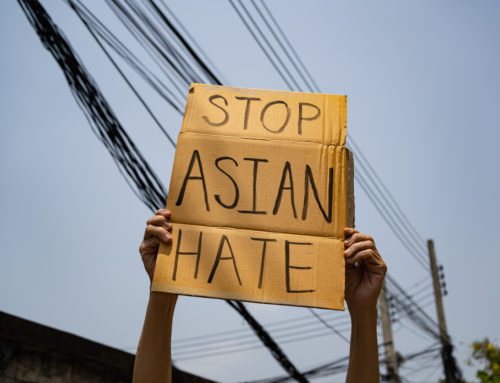Funders: Let’s Stop Fixating on Our Issues and Start Supporting Our Values
February 3, 2017
By Dimple Abichandani, Executive Director of General Service Foundation
As I think about where we go from here, I can’t stop thinking about the election.
The 2010 election.
In 2010, there were two dozen states that had anti-Sharia law ballot measures and/or legislation pending. In fact, Sharia law did not pose any real threat to communities, but these ballot measures introduced by conservatives tested whether Islamophobia mobilized voters. On election day in 2010, voters in Oklahoma overwhelmingly voted to amend the state constitution to ban the use of Sharia law in state courts. The vote in Oklahoma confirmed the potency of Islamophobia and the degree to which “othering” and fear turned out voters.
At that time, I led the Security & Rights Collaborative, a donor collaborative at the Proteus Fund fighting Islamophobia. In my progressive philanthropy circles, there were colleagues concerned about the troubling trend, but only a handful of foundations were supporting anti-hate efforts in 2010. And more often than not, when I reached out to funders to invite their support, I would be met with regret that “this is not our foundation’s issue.”
On December 7, 2015, candidate Donald Trump announced a proposed ban on Muslims entering the United States. Where philanthropy ignored the early warnings, he had clearly paid attention. And as we all know, last week, President Trump made good on his promises by passing an executive order temporarily barring entry into the United States of people from seven majority Muslim countries.
Today, we all can see how hate and “othering” helped elect one of the most dangerous and xenophobic administrations in U.S. history. Decades of hard-won progress across so many issues from racial and gender justice to reproductive rights, economic justice, and environmental justice may be unraveled.
So where does that leave us in philanthropy? As we face multiple challenges on multiple issues, how can philanthropy most effectively fight back?
I ask this question today from my current position as the Executive Director of the General Service Foundation, a private foundation that advances justice. In my first year at GSF, our board and staff took time to look beyond and behind the issues we fund to articulate our core values and the impact we are working toward. As I work with my fellow funders in this moment, I know that these core values, our clarity about our purpose, and the example set by movement leaders charts a path forward.
Today, advocates across issues are coming together to stand with each other in solidarity. As they lock arms to demonstrate a progressive united front, there is growing power and potential for a movement of movements. Funders ought to follow suit, and adopt a practice of solidarity that supports a more unified field in this unprecedented moment—a moment that warrants a continued, strong, and united response at a scale not seen before.
Read the original article at Inside Philanthropy.



